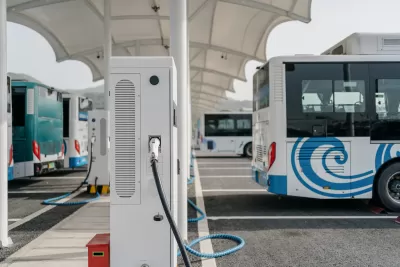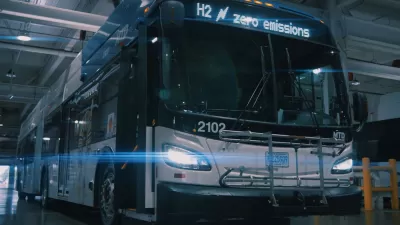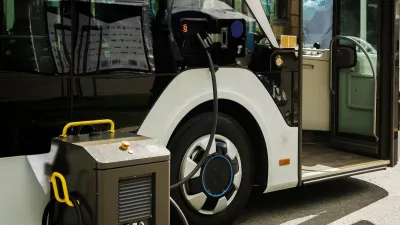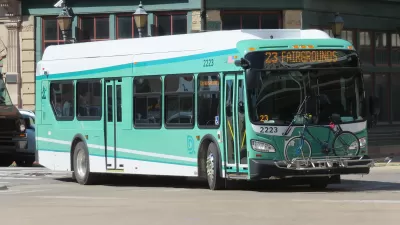Two programs designed to help transit agencies shift to electric and zero-emission fleets contain rules that could slow the adoption of zero-emission vehicles.

An analysis by Transportation for America finds that certain provisions of the federal Low or No Emission Vehicle (Low No) and Bus and Bus Facilities programs limit their effectiveness and “artificially constraining the supply of zero-emission funds, locking in unnecessary transit emissions for decades.”
Based on information obtained by T4A through a Freedom of Information Act (FOIA) request, T4A concludes that “the [Low No] program encourages transit agencies to buy diesel hybrid and compressed natural gas (CNG) buses instead of zero-emission buses running on electricity or hydrogen,” with 25 percent of the Low No program’s funding aimed at low-emission, not zero-emission, vehicles and projects.
While “The Bus and Bus Facilities program does not place constraints on fuel types when considering awards,” T4A found that “zero-emission projects had a one in six chance of being awarded while consuming 83 percent of the program’s available funding.”
According to T4A, “Congress can do more to ensure that these programs are working to accomplish emission reduction goals” by increasing funding for both programs to meet the overall demand for buses and facilities; creating incentives for both programs to leverage other funding sources; and increasing transparency of the program by making basic application and award information available on FTA’s website and looking for ways to simplify the application process.”
FULL STORY: Greener Fleets: How federal dollars can supply the demand for clean transit

Maui's Vacation Rental Debate Turns Ugly
Verbal attacks, misinformation campaigns and fistfights plague a high-stakes debate to convert thousands of vacation rentals into long-term housing.

Planetizen Federal Action Tracker
A weekly monitor of how Trump’s orders and actions are impacting planners and planning in America.

In Urban Planning, AI Prompting Could be the New Design Thinking
Creativity has long been key to great urban design. What if we see AI as our new creative partner?

Massachusetts Budget Helps Close MBTA Budget Gap
The budget signed by Gov. Maura Healey includes $470 million in MBTA funding for the next fiscal year.

Milwaukee Launches Vision Zero Plan
Seven years after the city signed its Complete Streets Policy, the city is doubling down on its efforts to eliminate traffic deaths.

Portland Raises Parking Fees to Pay for Street Maintenance
The city is struggling to bridge a massive budget gap at the Bureau of Transportation, which largely depleted its reserves during the Civd-19 pandemic.
Urban Design for Planners 1: Software Tools
This six-course series explores essential urban design concepts using open source software and equips planners with the tools they need to participate fully in the urban design process.
Planning for Universal Design
Learn the tools for implementing Universal Design in planning regulations.
Gallatin County Department of Planning & Community Development
Heyer Gruel & Associates PA
JM Goldson LLC
City of Camden Redevelopment Agency
City of Astoria
Transportation Research & Education Center (TREC) at Portland State University
Jefferson Parish Government
Camden Redevelopment Agency
City of Claremont





























